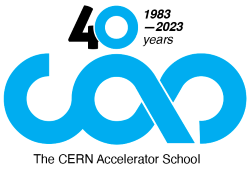Speaker
Description
Field maps, i.e. cartographic descriptions of the magnetic field, are used to assess the field quality in accelerator magnets, for various applications. Due to their capability to measure static magnetic fields, and their comparatively small active areas of less than 1 mm2, mapping techniques are based on Hall probes as magnetic field sensors.
This lecture begins with an introduction to the Hall effect and semiconductor-based Hall sensor technology. It then discusses the physical effects that limit the performance of Hall sensor measurements in single- and three-component measurements and explains remedies. Further details on calibration procedures for Hall sensor measurements at room and cryogenic temperature are discussed in the third section. Additional challenges for Hall probe mapper systems are discussed.
The last section of this talk deals with a post processing technique that drastically shortens the measurement time, increases the measurement precision, and avoids approximation errors. This post processing technique is based on a boundary element method for the field reconstruction of measured boundary data and leverages on the smoothing property of Kirchhoff’s integral equation.
